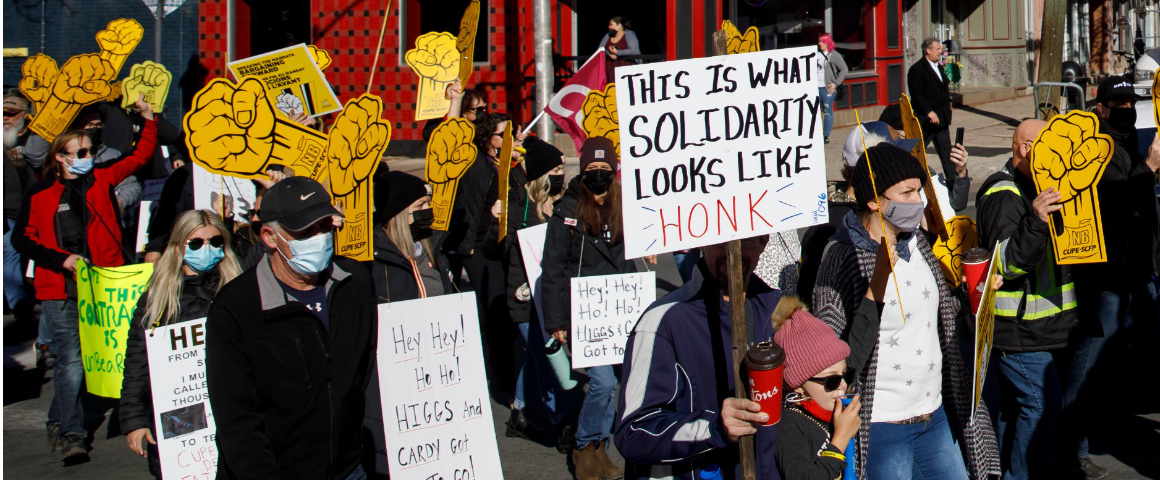PV staff
Unions in New Brunswick are gearing up for a fight in advance of new legislation coming into force in February, which guts collective bargaining and forces thousands of public sector workers into “shared-risk” pensions.
Bill 17, The Pension Plan Sustainability and Transfer Act converts pensions for about workers – roughly half of them currently employed and the other half retirees – from defined-benefit plans to “shared-risk” or target-benefit plans. While defined-benefit pensions guarantee a minimum level of benefits to retirees, shared-risk plans are subject to financial market performance, so the benefits are not guaranteed.
The law, which the Conservative government of Blaine Higgs passed in mid-December, overrides several collective agreements in the public sector, which provide the defined-benefit pensions. During debate in the provincial legislature, Labour leaders and opposition MLAs said the bill was an attack on free collective bargaining rights enshrined in the Charter of Rights and Freedoms.
Mark Janson, Senior Pensions Officer for the Canadian Union of Public Employees (CUPE) says that New Brunswick is the only jurisdiction in Canada in which pensioners can lose their defined-benefit pensions retroactively. “It allows pensions that were promised as defined benefits to be retroactively converted to target benefits.”
The workers – including school custodians, bus drivers, educational assistants and nursing home workers – thought they had secured their pension plans after the 16-day strike in 2021 [see photo] in which 22,000 provincial employees picketed across New Brunswick.
A major factor in that strike was the Higgs government’s demand for concessions on pension clauses, a demand which the Tories withdrew to end the strike.
Now, Higgs is arguing that the pensions are not sustainable and must change. But CUPE says the problem is that pensions have been “systematically underfunded.” Furthermore, pensions for many workers are modest at best, due to low wages – the average education worker, for example, receives only $9,000 – $12,000 per year when they retire.
After the Bill 17 passed, CUPE New Brunswick president Stephen Drost warned of a fight. “Today wasn’t the end, it’s just the beginning. I can’t tell you exactly what’s in store, but I can tell you they’re not going to take this lying down. Stay tuned.” Since then, the union has organized membership meetings to prepare for implementation, expected in February.
The law threatens retirement incomes and collective bargaining rights for workers and unions across the province and throughout Canada. There is a strong basis for country-wide labour solidarity, which will be needed if public sector workers in New Brunswick are to defeat this latest attack.
Support socialist media!
If you found this article useful, please consider donating to People’s Voice or purchasing a subscription so that you get every issue of Canada’s leading socialist publication delivered to your door or inbox!
For over 100 years, we have been 100% reader-supported, with no corporate or government funding.




